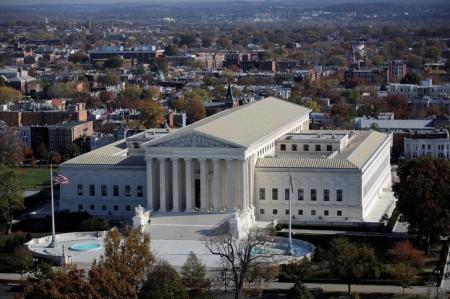Supreme Court sides with churches challenging COVID-19 worship restrictions in Colorado, New Jersey

The United States Supreme Court has issued orders vacating lower court decisions against churches suing Colorado and New Jersey over each state’s restrictions on worship gatherings.
On Tuesday, the Supreme Court issued an order in the case of Robinson v. Murphy vacating an order from Oct. 2 by a district court in New Jersey against a Catholic priest and a Jewish rabbi who sued the state over worship gathering restrictions.
Also on Tuesday, the high court issued a separate order in the case of High Plains Harvest Church v. Polis, in which a Colorado church challenged the restrictions in that state.
The Supreme Court vacated an Aug. 10 order by a Colorado district court against High Plains Harvest Church, although with this order Justice Elena Kagan dissented.
“I respectfully dissent because this case is moot. High Plains Harvest Church has sought to enjoin Colorado’s capacity limits on worship services. But Colorado has lifted all those limits,” wrote Kagan, being joined by Justices Stephen Breyer and Sonia Sotomayor.
“Absent our issuing different guidance, there is no reason to think Colorado will reverse course—and so no reason to think Harvest Church will again face capacity limits.”
As part of its response to COVID-19, Colorado had limited in-person worship services to 50 attendees, even though gatherings like protests were not held to the same attendance cap.
Both orders cited as justification for their granting of relief the recent Supreme Court case of Roman Catholic Diocese of Brooklyn v. Cuomo, which centered on New York state restrictions on worship gatherings.
In Brooklyn v. Cuomo, the high court ruled 5-4 to temporarily block gathering limits by the New York state government, saying that they unfairly hindered religious practice.
“Members of this Court are not public health experts, and we should respect the judgment of those with special expertise and responsibility in this area. But even in a pandemic, the Constitution cannot be put away and forgotten," stated the court in a Per Curiam ruling.
"The restrictions at issue here, by effectively barring many from attending religious services, strike at the very heart of the First Amendment’s guarantee of religious liberty.”
The Thomas More Society, a conservative law firm that represented the priest and rabbi at the center of the New Jersey case, celebrated the Supreme Court's order for Robinson v. Murphy.
“This order shows that the Supreme Court is truly interested in ensuring churches get equal treatment with secular activities,” said Thomas More Society special counsel Christopher Ferrara.
Under New Jersey Gov. Phil Murphy, houses of worship were limited to 25% capacity while secular entities like “Costco, Walmart, factories, schools, and other venues all get better treatment,” said Ferrara.
“We are getting a very clear message from the United States Supreme Court that government cannot set up any rules that apply to places of worship, or worship activities, but not to other, comparable secular activities,” he added.
As the coronavirus pandemic came to the U.S., states implemented varying levels of lockdowns that limited in-person gatherings, religious or secular, especially in-door gatherings.
Over the course of the past several months, there has been a great deal of litigation accusing many states and localities of wrongly putting tougher rules on churches than other entities.






















